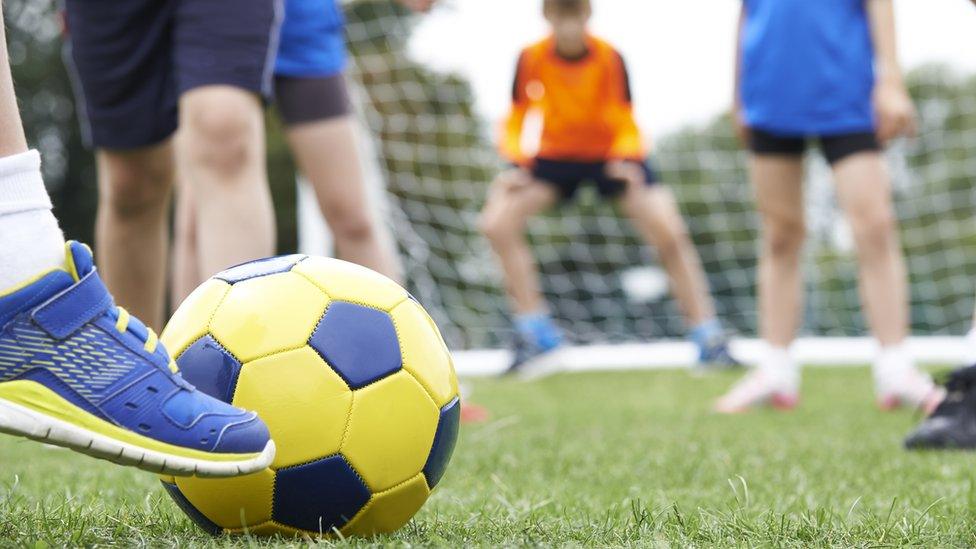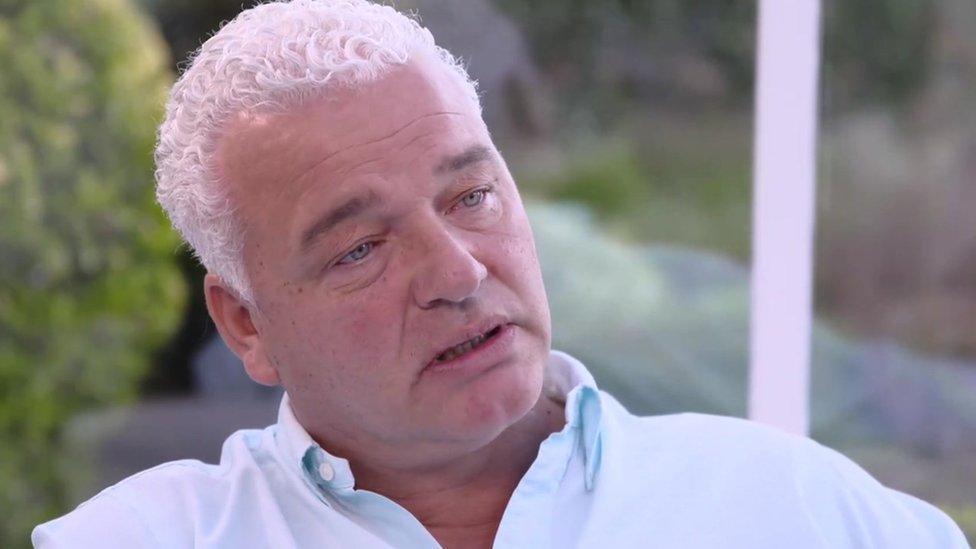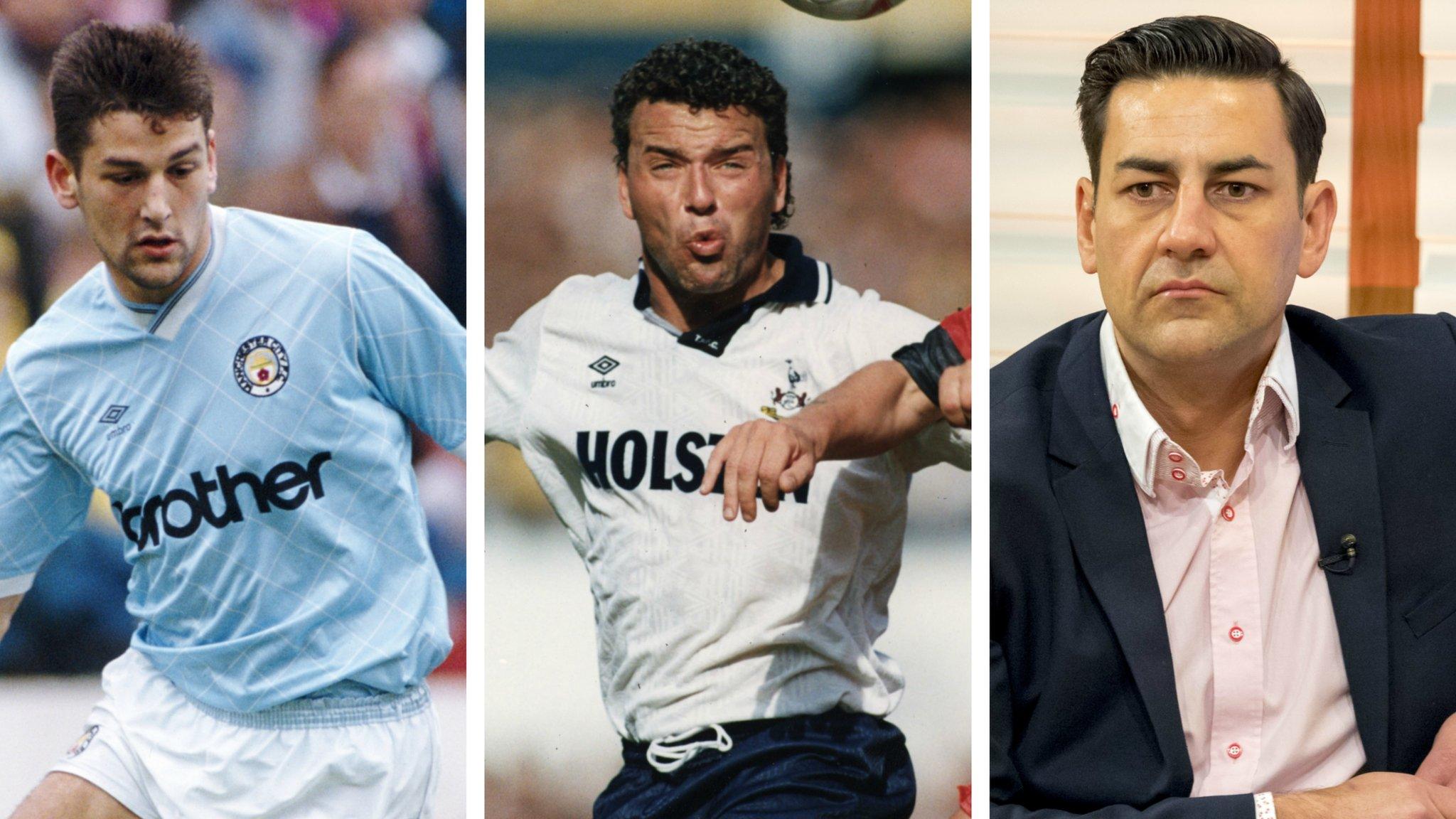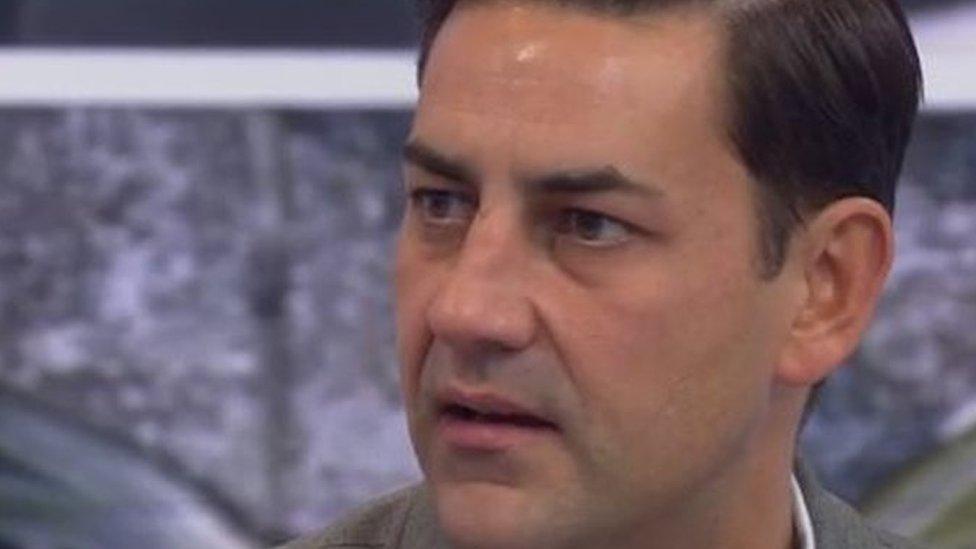How safe are children today from abuse in sport?
- Published

As football faces allegations of historical child sex abuse, what is currently in place to protect children?
The weekend rush to get the kids to football practice is a scene repeated in households across the UK. But this weekend, a cloud is hanging over the beautiful game after historical allegations of child sexual abuse were made by former youth players.
Four ex-players from Crewe Alexandra have alleged abuse as children by former youth team coach Barry Bennell.
Allegations of historical child sex abuse within the game are being investigated by four police forces in England, and the police and FA have said they expect further allegations to emerge.
So do parents still have trust in their coaches? And have attitudes toward safeguarding children playing sport changed over the past few decades?
We talk to parents and the people who run the game at the grassroots level.
Footballers speak out over sexual abuse
Sam Purnell's six-year-old daughter loves to play football after school in Basingstoke.
He says the allegations have not worried him because taking her safety seriously was advertised early on by the team.
"When she signed up, the Disclosure and Barring Service (DBS) check requirement was put in big lettering on all the flyers," he said. "I took that as a way to have confidence in them.
"Those checks are there for a reason. People who submit themselves for them have nothing to hide. So I feel that is a safe environment."
DBS checks replaced CRBs (Criminal Records Bureau checks) and are used to look into a person's criminal record if they apply for certain jobs or voluntary positions, such as when working with children or fostering them.
Sarah, who takes her seven-year-old son to a weekly football camp, has stronger concerns.
Speaking to BBC Radio 5 live, she said: "It is very worrying as a parent. I have been reading so much in the media recently about inappropriate behaviour, sexual assault, but never thought I was potentially putting my son in harm's way.
"Now I hear it is in football academies and that is really concerning. I don't know what checks are done on these people but even if it is DBS checks, you don't know if any previous crimes have been picked up."
'Everything is covered'
The Football Association is seeking to reassure parents in light of the allegations. FA chairman Greg Clarke said this week there were 8,500 safeguarding officers in the community, and added he had written to 30,000 clubs to raise their awareness.
Greg Clarke said the FA would focus its attention on helping the victims
All clubs must also have what is called a welfare officer whose job is to make sure the goals of the association are met, meaning high standards of behaviour on and off the pitch from both players, staff and parents.
Sarah Charman is the club welfare officer for Deddington Town FC. The Oxfordshire club has 10 youth teams and both of her young sons play there.
"Things have changed enormously when it comes to protecting children in that way," said Mrs Charman. "The FA has got all the bases covered and they are very strict on them."
The welfare officer, whose husband is the chairman of the youth section, said anyone who worked with the children, even if just a parent volunteer, would have to have a DBS check.
She also said there was a strong network of other welfare officers that met regularly and could support each other through any difficult situations that arose.
"I feel quite confident as a parent that everything is covered," added Mrs Charman. "When I completed my courses to become a welfare officer, it made me think that all the questions that I would have as a parent to allow my children to be looked after by someone else had been answered."
Phil Davies coaches the under-eight and under-11 teams at Thurlby Tigers in Lincolnshire and says there was a raft of training he had to go through before taking the reins.
"The environment has changed a lot," he said. "I don't even remember anything like welfare officers when I used to play. A lot of the coaches back then didn't have to be qualified and I don't even think there were the DBS checks then."
As well as being certified by the FA, he has had to do a child-safeguarding course and have his own DBS check.
And with his eight-year-old son as keen to join in as he is, it is a reassurance.
"Knowing what the requirements are now, knowing that coach will have to have been checked and trained properly, it does put my mind at ease as a parent too," he added.
Spotting the signs
Football is not the only sport where the importance of child safeguarding has developed substantially in recent years.
Max Cooter, who lives in Brighton, is a cricket coach and training to be a rugby coach - the two sports his son and daughter play.
"When I was training, there was a six-day course completed over six weeks, and one entire day was dedicated to the pastoral side," he said.
"We were told how to spot signs of physical and sexual abuse, we were told how we were to behave with the children, and what we should do if we suspected anything with one of the other coaches, where to go and who to call."
As a father of two, he feels much safer in the knowledge of how seriously their clubs take these matters.
"When I used to play sports at school and at a cricket club, it just wasn't talked about and wasn't thought of as an issue," said Mr Cooter. "It is scary when you think about what we know now.
"But sport is clearly taking it seriously and have got the measures in place to protect children."
There is more work to be done, though, and more allegations are likely to come to light, according to Chief Constable Simon Bailey, the National Police Chiefs' Council (NPCC) lead for child protection.
He said: "We, as a country, are now having to deal with the legacy of non-recent sexual abuse and the thousands of allegations that we are now seeing across the country.
"I just think that we have more and more victims, thankfully, who are having the confidence to come forward knowing the police service's response and society's response to their abuse is now very different."
The NSPCC has set up a helpline for people affected by sexual abuse at football clubs, supported by the FA. It is available 24 hours a day on 0800 023 2642
- Published25 November 2016

- Attribution
- Published24 November 2016

- Published17 November 2016
